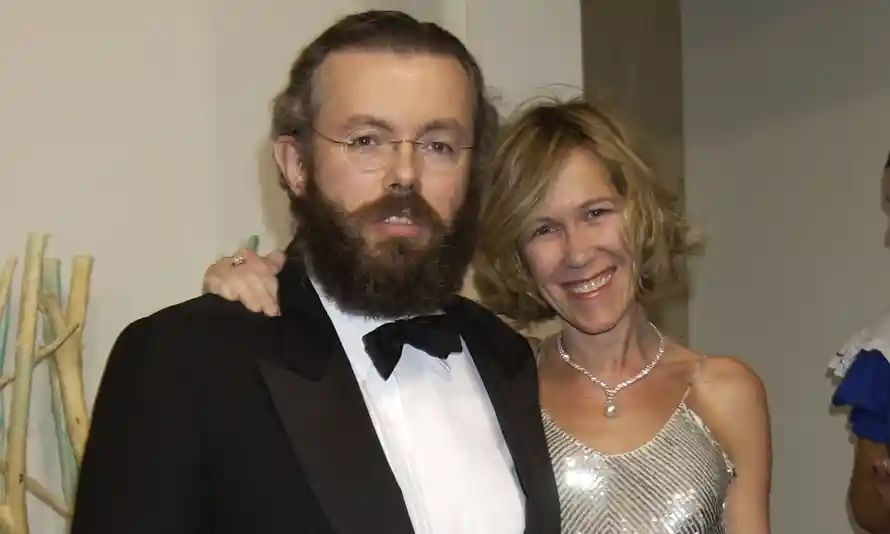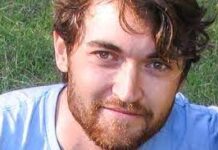The Swedish billionaire has ploughed her Tetra Pak inheritance into charitable trusts which dispense €31m a year to human rights causes around the world Sigrid Rausing In Dublin this week. “If you fund human rights you have to take a neutral, disinterested view of politics, and you have to recognise that human rights abuses occur on the left and the right.” Photograph: Eric Luke
Walking through Dublin on my way to interview one of the world’s wealthiest women, I disturb a flock of pigeons under a railway arch. The birds fly up, aggrieved, revealing a homeless man underneath, barely visible under his sodden sleeping bag.
Up the street in the oak-panelled warmth of the Merrion Hotel there is little about Sigrid Rausing to indicate her billionaire status. The antithesis of bling, she is dressed in a grey wool suit and a plain brown blouse. She wears no trace of make-up or jewellery, save for a simple gold wedding band, and her hair is streaked with grey.
Such are cities, such is the world. Rausing, a Swedish philanthropist, anthropologist and publisher, is no stranger to the kinds of sharp extremes life throws up.
If you’ve heard her name before – you probably haven’t and that’s just fine with her – it is probably because her brother, Hans Kristian Rausing, made world headlines in 2012 when he was arrested on suspicion of possessing class A drugs. But more of that later.
The Rausing family owes its fortune to milk cartons after grandfather Ruben changed the way dairy products were packaged by patenting Tetra Pak. In the 1970s his son Hans moved the family to the UK and later sold his share of the business in the 1990s. The Rausings were the UK’s richest family until Roman Abramovich came along, but Hans Rausing is still worth an estimated €11.5 billion.
Sigrid Rausing has ploughed her inheritance into charitable trusts, which today dispense €31 million a year to human rights causes across the world. A pleasing, soft-spoken 52-year-old, she nonetheless is possessed of strong and often challenging opinions about a world she is in a position, through her philanthropy, to influence more than most of us.
Probably the seminal event in the development of her philosophy was the year she spent on a collective farm in Estonia in the early 1990s. Living among the remnants of Swedish-speaking communities in the aftermath of the collapse of communism, in freezing conditions with no money or hot water, the young heiress gained a unique insight into penury and the effects of totalitarianism.
‘Certainly not left-wing’
The experience provided material for her PhD in anthropology and a later book, and permanently marked her thinking. At one point I describe her as left-wing.
“I’m certainly not left-wing,” she responds. “Having lived on an Estonian collective for a year doing fieldwork I saw the catastrophe that was the Soviet model.”
She sees the continuing legacy of that system of control in Vladimir Putin’s Russia.
“It’s a terrorist state. Putin came out of the KGB, and he’s still a KGB man. He has failed his people, it’s an utterly corrupt state.”

Another formative influence was growing up in left-wing Social Democratic Sweden.
“I saw what could happen with good intentions. I saw how the model of a big state can undermine so much good development.”
The picture Rausing paints of the Swedish economic model is far from the utopia lauded by many Irish political thinkers. She talks passionately about the negative impact of an overweening state on society.
In education, exams were abolished to be replaced by a system of continuous assessment – take note Jan O’Sullivan – with the result that “teachers favoured pupils who were, like them, middle-class”.
Universities lost their independence and the sciences were preferred over the arts, while schools spent bloated art budgets on “hideous, brutalist, modernist” pieces of sculpture.
I suggest her views may be coloured by tax considerations, but Rausing says the decision to move Tetra Pak out of Sweden was prompted not by high taxes but by a proposal, later abandoned, to force companies to give equity to trades unions. In any case, she says, her many views on high taxes are not necessarily related to anything in the company’s history.
“Growing up in a high-tax society, I could see it wasn’t necessarily a great thing.” Sweden, with one of the lowest crime rates in the world, had a “massive” police force.
“I grew up with police cars patrolling our every move. They were forever arresting students for cycling the wrong way down the street,” she recalls, not without amusement.
“The Social Democrats had the idea of strengthening equality in Sweden, which was a laudable goal. But left-wing states tend to be very instrumentalist, and that can have a very adverse effect on society as a whole.”
Rausing’s criticisms of the left extend to her analysis of terrorism. Today’s terrorists are rooted in a tradition of left-wing terrorism, she believes, going on to list off the historical iterations of this phenomenon – Algeria, anti-Zionism, Palestinian causes, and terror groups in Europe “from Baader Meinhof to the IRA”.
“All of these groups had a lot in common and they were supported by the Soviet Union.”
The tradition of terror
Even the Charlie Hebdo killers were “of that tradition of terror”, she maintains.
“To frame the narrative in terms of Islam versus the West does a great disservice to the majority of Muslims in the world. It’s an absurd way of thinking. The terrorist tradition . . . It doesn’t matter whether the terrorist is Muslim or Catholic Irish, the terrorist itself is the tradition.”
Rausing was in Dublin this week to deliver the third Front Line Defenders annual lecture on “A Hardening Climate – Funding Human Rights in Repressive Societies”, held in association with TCD and UCD.
Front Line, an Irish-based human rights organisation founded by former head of Amnesty International’s Irish branch Mary Lawlor, is right up her street. For over a decade, she has funded its work in supporting advocates for human rights who find themselves in positions of extreme danger.
“Mary Lawlor did a great thing in framing the narrative around human rights defenders and keeping the focus on the individual, she says, contrasting the organisation’s somewhat old-fashioned focus on prisoners of conscience with Amnesty’s “imprecise” focus on economic and social rights.
“What I like about the more legal classical human rights framework is that evidence is taken very seriously, and precision is very important. When Amnesty talks about social and economic rights they’ve moved away from that.”
Seeking to clarify our earlier conversation, she tells me, “I certainly wouldn’t describe myself as right-wing”.
“If you fund human rights you have to take a neutral, disinterested view of politics, and you have to recognise that human rights abuses occur on the left and the right, the extreme left and right. We’re a progressive funder and we fund progressive forces.”
Notwithstanding the challenges posed by terrorism and the often heavy-handed response of governments in the “war on terror”, she is optimistic about the future.
“The global conversation on human rights is extending to practically every country now, with a few exceptions like North Korea. So I think there is a creaky but nevertheless burgeoning global dialogue on the issue.”
Inherited wealth
Rausing seldom gives interviews and has no interest in publicity, but her family has been thrust into the limelight since her brother Hans Kristian Rausing’s travails. When he was arrested, a search of his mansion uncovered the body of his wife Eva behind a locked door in an upstairs bedroom. An addict herself, she had died two months earlier.
Her brother is now in recovery and has since remarried.
“Inherited wealth is a mixed blessing,” she reflects. “It can be very disempowering for people’s development. Unconsciously, it can feel like all types of professions are not for you. I think it’s a real handcuff in life.”
Was it disempowering for her brother? “Addiction is a very complex issue. The educated middle-classes who frame the narrative on addiction tend to focus either on people who are very poor or who are very rich. That’s because they have no understanding of great wealth or great poverty; it’s completely outside their existential experience.
“To me that [narrative] feels like a red herring. It’s not what addiction is about. Addiction is a very serious emotional illness with a small genetic component. To me the emotional illness part is the key to it.”
Rausing has one child and two step-children from her second marriage to film producer Eric Abraham. She owns the Granta publishing house and personally edits its famous literary quarterly
.
She talks enthusiastically about her plans for an Irish edition of Granta to be published in 2016, and also about Abraham’s plans to shoot a film in Dublin later this year. Hot on the heels of winning a second Oscar for best foreign-language film this year, the South African-born producer is adapting The Fields by London-based Irish writer Kevin Maher.
“It’s a fascinating time for Ireland with the centenary of the uprising,” she says. “Also the referendum on marriage equality is very interesting, as well as the move of schools towards greater pluralism, plus a lot of great writers coming out of Ireland.”
Mind you, perhaps channelling her view on terrorism, she believes the Rising was “a catastrophe” because of the human suffering it caused at the time and subsequently. The issue at stake “didn’t die, it festered. It was never settled and I’m not sure it’s settled still.
“Britain and Ireland as one country would have been a better country,” she asserts, before qualifying her remark, “But at the same time it was so dominated by the English and by London and so many people had died beforehand and the suffering of the Irish had been so great. Of course, it’s completely understandable what happened. The war was never really settled, it just continued.”
Biography of Marit Lisbet Sigrid and Hans Rausing Marit Lisbet Sigrid and Hans Rausing Biography Marit Lisbet Sigrid and Hans Rausing Net Worth Marit Lisbet Sigrid and Hans Rausing Net Worth and Biography in hindi Marit Lisbet Sigrid and Hans Rausing Net Worth and Biography Biography of Marit Lisbet Sigrid and Hans Rausing Marit Lisbet Sigrid and Hans Rausing Biography Marit Lisbet Sigrid and Hans Rausing Net Worth Marit Lisbet Sigrid and Hans Rausing Net Worth and Biography in hindi Marit Lisbet Sigrid and Hans Rausing Net Worth and Biography Biography of Marit Lisbet Sigrid and Hans Rausing Marit Lisbet Sigrid and Hans Rausing Biography Marit Lisbet Sigrid and Hans Rausing Net Worth Marit Lisbet Sigrid and Hans Rausing Net Worth and Biography in hindi Marit Lisbet Sigrid and Hans Rausing Net Worth and Biography






